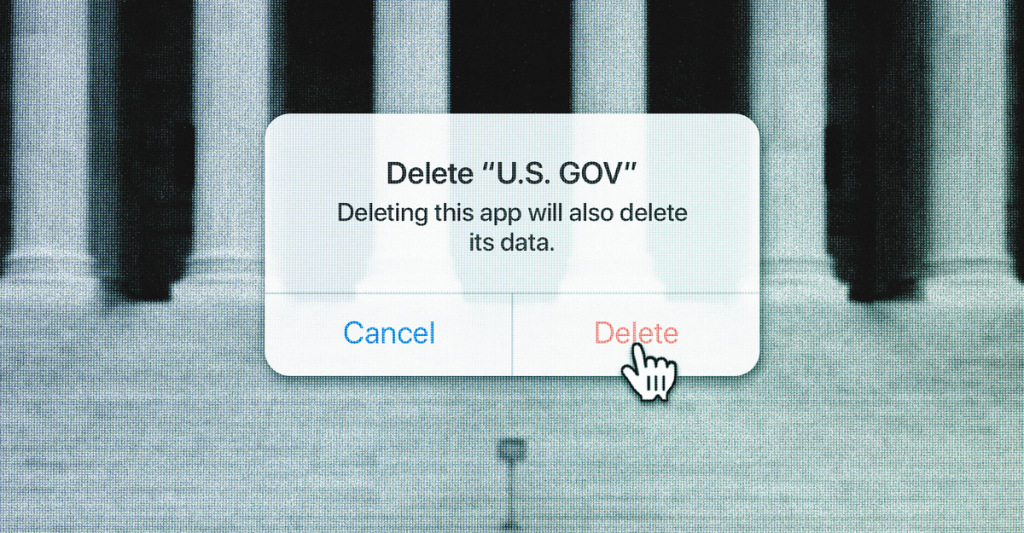Elon Musk’s Stealth Takeover: The Rise of DOGE
Elon Musk, the billionaire CEO of Tesla and SpaceX, has emerged as a pivotal figure in the U.S. federal government through his role at the Department of Government Efficiency (DOGE). This role, while not officially recognized by Congress, grants Musk significant influence over federal operations, raising concerns about an administrative coup. Musk’s involvement with DOGE has led to rapid, sweeping changes, including the termination of government building leases and drastic workforce reductions. His actions, while controversial, reflect a broader strategy to reshape government operations in his image, prioritizing efficiency and consolidation of power over traditional bureaucratic structures.
A New Era of Government Management: Actions and Implications
Musk’s tenure at DOGE has been marked by bold, sometimes abrasive actions. He has personally entered government buildings to oversee lease terminations and workforce cuts, particularly targeting the Office of Personnel Management. His team has also accessed sensitive systems, including the Treasury’s payments network and databases containing personal data of civil servants. These actions have sparked legal challenges, such as a lawsuit alleging violations of the E-Government Act due to an insecure email server. Musk’s approach has drawn criticism for its potential national security risks and disregard for established protocols, highlighting the tension between his vision of a streamlined government and the complexities of federal operations.
Parallels to Twitter/X: A Blueprint for Power
Musk’s management of DOGE mirrors his takeover of Twitter, now rebranded as X. Both endeavors reflect his strategy of consolidating power and using institutions as platforms for political influence. At Twitter, Musk prioritized polarization and the reinstatement of banned accounts, transforming the platform into a tool for his ideological agenda. Similarly, at DOGE, Musk is reshaping the government to align with his goals, often disregarding the long-term consequences for the organizations involved. This approach, while detrimental to institutional health, serves to enhance Musk’s personal influence and satisfy his supporters.
Resistance and Risks: Challenges to Musk’s Agenda
Opposition to Musk’s actions is growing, both within and outside the government. Employees at the U.S. Agency for International Development (USAID) have faced repercussions for resisting Musk’s access to classified information, with some placed on administrative leave. Legal challenges, such as the lawsuit over the email server, further complicate Musk’s agenda. Critics argue that his methods undermine governmental stability and pose significant risks, including potential security breaches and loss of institutional knowledge. These challenges highlight the fraught nature of Musk’s tenure and the broader debate over his role in federal governance.
Theories vs. Reality: Governing as a Tech Startup
Musk’s approach to government reflects his background in tech, where he advocates for a startup-like culture of rapid innovation and adaptability. However, this model often clashes with the realities of federal operations, which require careful planning and consideration of long-term consequences. Experts like Robert Gordon caution against the hasty implementation of reforms, emphasizing the need for detailed, thoughtful approaches to bureaucratic change. Musk’s unilateral decisions, such as disbanding the IRS team behind the Direct File tax product, illustrate the risks of prioritizing speed over deliberation, potentially undermining essential services and expertise.
The Bigger Picture: Musk’s Vision and Its Implications
Musk’s involvement with DOGE represents more than a managerial shift; it signifies a profound transformation in how government operates and is perceived. His vision of a lean, tech-driven federal apparatus appeals to critics of bureaucracy but raises concerns about accountability and competence. As Musk continues to consolidate power, the implications for democracy and governance remain uncertain. Whether his tenure at DOGE will usher in meaningful reform or further destabilize federal operations is a question that will shape the future of U.S. government efficiency and accountability.


